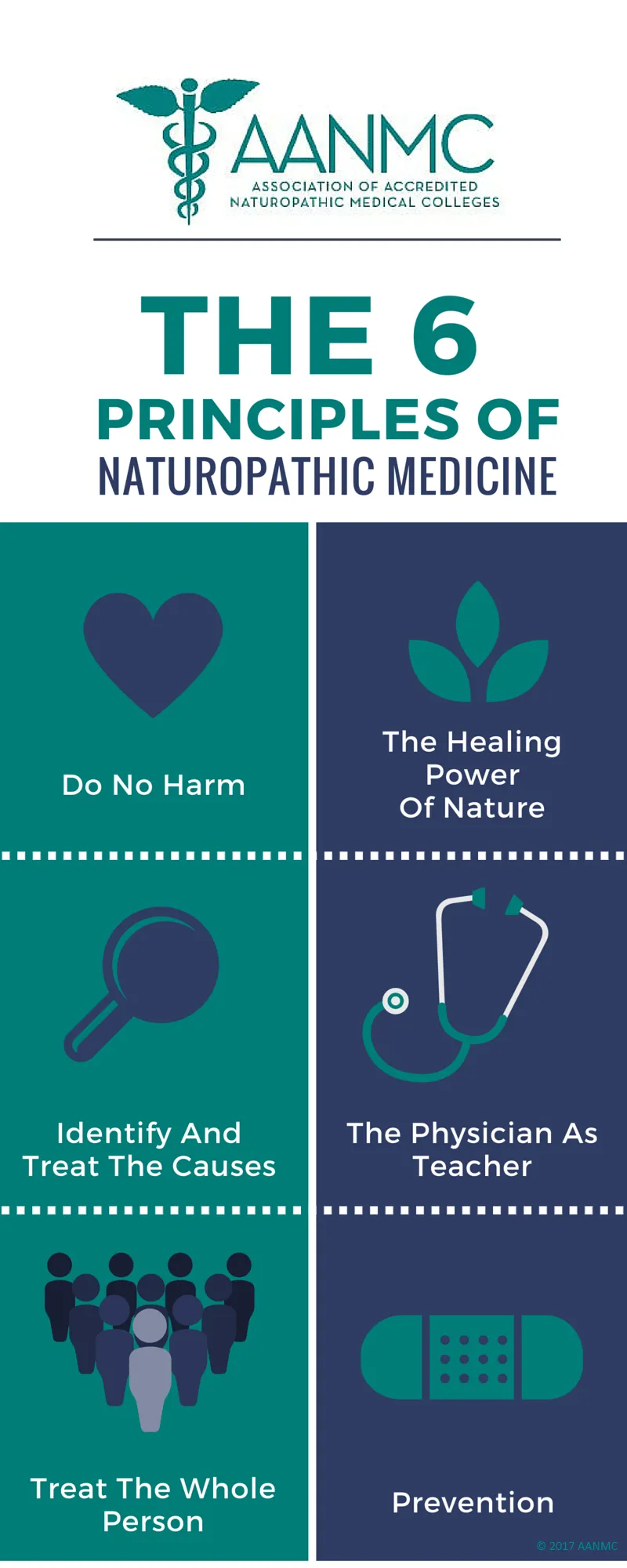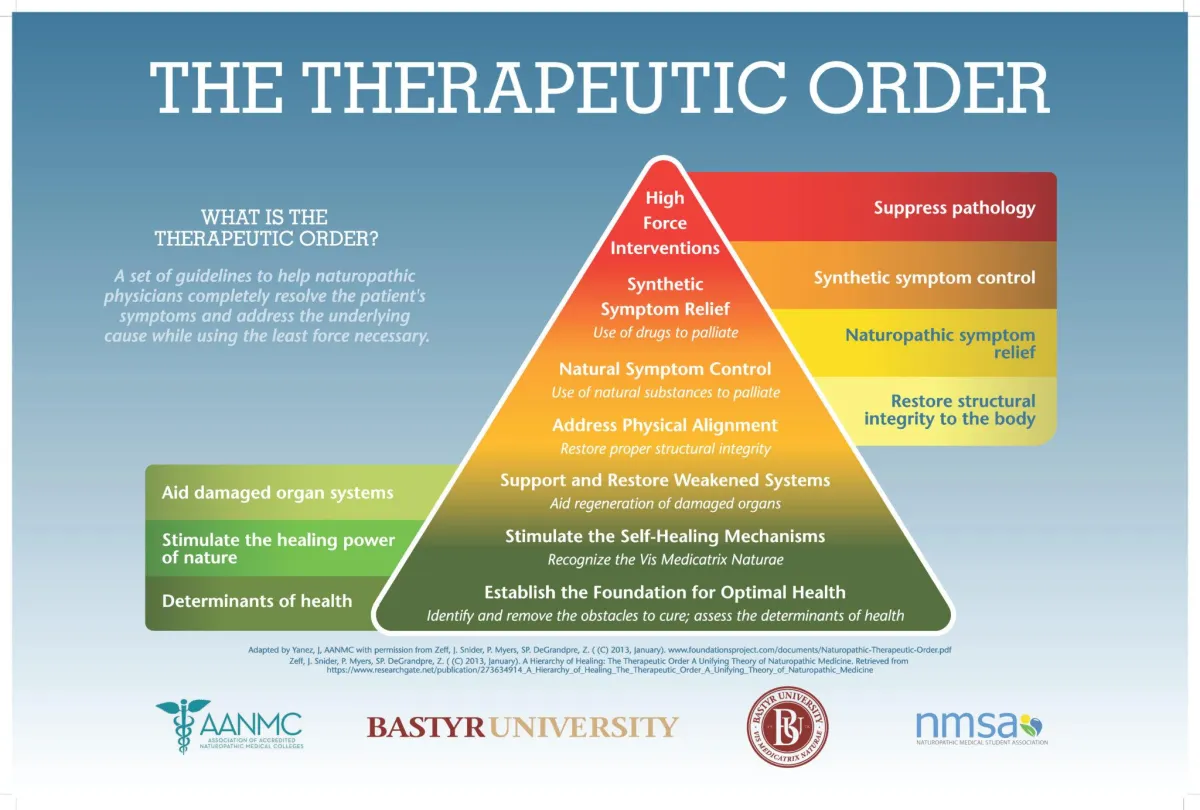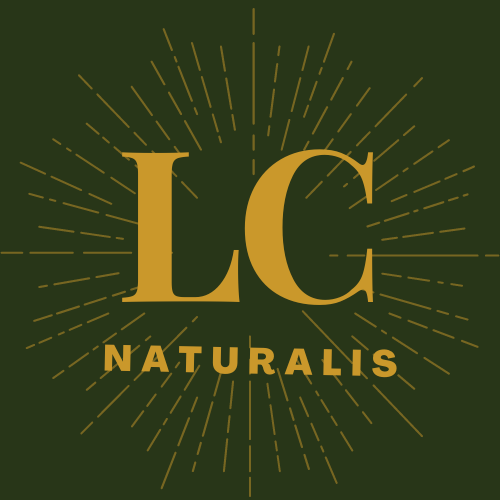About Naturopathic Medicine
Naturopathic medicine is a holistic system of healthcare that emphasizes natural, least invasive, and least toxic therapies to treat illness, and promotes wellness by treating the whole person. It is based on a set of six principles that guide naturopathic practitioners in their approach to patient care. And, above all, it honors the body’s innate wisdom to heal, giving patients tools for lifelong wellness. These principles are:
First, Do No Harm (Primum Non Nocere): Naturopathic physicians prioritize using the least invasive and least harmful interventions necessary to promote healing. They carefully evaluate the potential risks and benefits of any treatment, and they aim to minimize any potential side effects or harm to the patient. NDs will refer when the patient’s presentation is outside their scope or level of skill.
Identify and Treat the Causes (Tolle Causam): Naturopathic doctors recognize that there is a time and place for symptom suppression, however we seek to identify a patients underlying cause of illness, and remove obstacles to cure. This involves considering factors such as lifestyle, diet, environment, and emotional well-being.
Treat the Whole Person: Naturopathic medicine considers the individual as a whole, acknowledging that physical health is intricately linked with mental, emotional, and spiritual health. Practitioners take into account an individual’s physical, mental, emotional, genetic, environmental, and social factors when crafting treatment plans, all in the pursuit of achieving optimal health.
The Healing Power of Nature (Vis Medicatrix Naturae): This principle acknowledges the body’s inherent wisdom to heal itself. The role of the naturopathic physician is to support and facilitate this process by identifying and removing obstacles to recovery and fostering a healthy internal and external environment.
Doctor as Teacher (Docere): Naturopathic doctors see themselves as educators. We understand that through education and a trust-based relationship, patients will better understand the steps needed to achieve health. Therefore, our aim is to empower patients with the knowledge and tools so that they can take responsibility for their own health. This involves providing information about healthy living, nutrition, exercise, and other lifestyle choices.
Prevention: Naturopathic medicine affirms that it is better to prevent illness and suffering whenever possible. This involves combining all six principles in order to identify potential areas of imbalance and teach patients how to get and stay well.

These principles collectively guide naturopathic physicians in providing holistic and patient-centered care. We aim to promote the overall well-being and vitality of an individual to enhance their quality of life.

The Therapeutic Order
A common question for those who have not visited a naturopathic doctor before, is how a ND practice is different from what they might be used to in conventional models. The Therapeutic Order guides how the naturopathic principles are applied, and is based on the idea that the human body possesses an inherent drive to heal itself. It posits that the least amount of force be employed in order to promote gentle, safe and long-lasting health and well-being. The Therapeutic Order characterizes the natural progression of naturopathic therapeutic recommendations to maximize patient benefit and reduce the potential for damage or harm. Naturopathic care ultimately focuses on the individual and what is best for them at that moment in time.
The following are the seven components and stages of the therapeutic order.
Remove Obstacles to Health
In order to return to health, the initial step must be removal of anything impeding the healing process. This is often referred to as “removing obstacles to cure.” Naturopathic physicians create a plan with their patient that addresses these obstacles (common culprits are poor diet, excessive stress or disruptive coping mechanisms, digestive disturbances, inadequate rest, toxic exposures, socioeconomic stressors, trauma, etc.) in an effort to remove them and their effects, and improve the conditions under which the disease developed. Removing the things that are disturbing health allows the person’s vitality to increase, the self-healing process to be optimally engaged, and further therapeutic interventions to have the greatest beneficial effects possible. Removing obstacles to cure is core to the expression of the Naturopathic Philosophical Principle, Treat the Cause.
Stimulate the body’s self-healing mechanisms
Every person has within them an innate wisdom and intelligence that tends toward the optimal expression of health. In naturopathic medicine, this is called the “Vis Medicatrix Naturae.” The “Vis Medicatrix Naturae” is the body’s innate healing ability, the process of healing which engages with one’s “vital force” or life force, as it is often termed. Naturopathic physicians use various therapies such as nutrition, botanical medicine, physical medicine, lifestyle counseling, acupuncture, homeopathy and hydrotherapy to stimulate and enhance this mighty and dynamic force and process allowing the body to heal itself.
Strengthen Weakened or Damaged Systems – Restore and Regenerate
Sometimes the mind, spirit and body’s systems or functions need more than stimulation to improve. Systems that are under or overactive, or that need repair or support are addressed in this step. Naturopathic physicians use their broad and varied natural medicine(s) and healing practices to aid in restoring optimal function to an entire physiologic or organ system. This might include applying botanical medicine, endocrine balancing, professional grade supplements, homeopathy, counseling, manual therapies, acupuncture and others with the intention of enhancing the function of specific tissues, organs or systems; or at the psycho-emotional level.
Correct Structural Integrity
This level involves the use of physical therapies such as spinal manipulation, massage therapy, electrotherapy and cranio-sacral therapy to improve, support, and maintain musculature, fascial and skeletal integrity. Therapeutic movement, optimizing biomechanics, physical therapy and exercise may also be employed at this level to promote return to optimal structural condition.
Use Natural Therapies to Address Pathology and Symptoms
Although the primary objective of naturopathic medicine is to restore health, not to treat a distinct pathology, there are instances where specific pathologies must be addressed and managed. In these cases, naturopathic physicians utilize physiologically synergistic, dependable, effective natural substances that are unlikely to add toxic burden, cause adverse effects, place undue additional strain on an already disordered system, nor undermine the vis medicatrix naturae, while relieving the symptoms which cause suffering.
Use Pharmaceutical or Synthetic Substances to Stop Progressive Pathology
Synthetic or pharmaceutical substances may be necessary to restrain or strongly manage symptoms, and address specific pathology that is negatively impacting a patient’s quality of life or safety. NDs recognize that suppressing symptoms removes some of the awareness that helps us better understand the root cause of an issue and the ability to restore vitality.
Use High Force, Invasive Therapies to Suppress Pathology
Sometimes it is necessary in the interest of patient health, comfort and safety to suppress pathological symptoms, prior to addressing underlying causal factors, and ultimately restoring health. Though suppressive or palliative therapies may result in reduced symptomatic expression, even when done with the best of intentions, the end result of suppressive therapies is that the original, fundamental disturbing factors will continue to impact the person by sustaining disruption of functions (though perhaps to a lesser degree). Resolution of the disturbing factors may also be impeded or halted until the patient is stabilized and can address underlying causes while minimizing suffering and preventing further deterioration.
Resources:
Aanmc. “The Therapeutic Order.” AANMC, 9 June 2020, aanmc.org/featured-articles/therapeutic-order/.
“The Six Principles of Naturopathic Medicine.” AANMC, 18 May 2020, aanmc.org/6-principles/.
How does an ND program compare to an MD or DO
Naturopathic Doctor (ND), Medical doctor (MD) and Doctor of Osteopathy (DO) programs share a common foundation, each necessitating the completion of a bachelor’s degree and prerequisite pre-med courses. Subsequently, all three paths require enrollment in a 4-year curriculum at a nationally accredited university or college. Despite their shared focus on biomedical sciences in the initial stages, distinctions emerge in their clinical training. In addition to biomedical sciences, NDs receive comprehensive instruction in botanical medicine, homeopathy, nutrition, IV and injection therapy, hydrotherapy, lifestyle coaching and physical medicine. This allows NDs to have a broad spectrum of holistic modalities to draw upon and allows them to integrate various approaches into their practice. This diversity enables NDs to address health and wellness through a more integrative lens. Click here to review each specialties training.
Resources:
TESTIMONIALS
What Are Our Customers Saying ?

I've never felt better, both physically and mentally. The holistic approach and ongoing support are invaluable.
JANE DOE

Their guidance and tailored nutrition plan pinpointed the root causes of my problems and provided a sustainable solution.
JOHN DOE
Our Team

Meet our team of dedicated nutrition experts who are passionate about your well-being.
JOHN DOE

At [Your Name] Holistic Nutrition, we are more than just nutritionists; we are your wellness advocates.
JANE DOE

We work together to create tailored nutrition plans, drawing from various specialties to address your unique needs.
JOHN DOE
FAQS
What is Naturopathic medicine
Naturopathic medicine is a system of healthcare that emphasizes natural, least invasive, and least toxic therapies to treat illness, and promotes wellness by treating the whole person. It is based on a set of six principles that guide naturopathic practitioners in their approach to patient care. And, above all, it honors the body’s innate wisdom to heal, giving patients tools for lifelong wellness. These principles are:
First, Do No Harm (Primum Non Nocere): Naturopathic physicians prioritize using the least invasive and least harmful interventions necessary to promote healing. They carefully evaluate the potential risks and benefits of any treatment, and they aim to minimize any potential side effects or harm to the patient. NDs will refer when the patient’s presentation is outside their scope or level of skill.
Identify and Treat the Causes (Tolle Causam): Naturopathic doctors recognize that there is a time and place for symptom suppression, however we seek to identify a patients underlying cause of illness, and remove obstacles to cure. This involves considering factors such as lifestyle, diet, environment, and emotional well-being.
Treat the Whole Person: Naturopathic medicine considers the individual as a whole, acknowledging that physical health is intricately linked with mental, emotional, and spiritual health. Practitioners take into account an individual’s physical, mental, emotional, genetic, environmental, and social factors when crafting treatment plans, all in the pursuit of achieving optimal health.
The Healing Power of Nature (Vis Medicatrix Naturae): This principle acknowledges the body’s inherent wisdom to heal itself. The role of the naturopathic physician is to support and facilitate this process by identifying and removing obstacles to recovery and fostering a healthy internal and external environment.
Doctor as Teacher (Docere): Naturopathic doctors see themselves as educators. We understand that through education and a trust-based relationship, patients will better understand the steps needed to achieve health. Therefore, our aim is to empower patients with the knowledge and tools so that they can take responsibility for their own health. This involves providing information about healthy living, nutrition, exercise, and other lifestyle choices.
Prevention: Naturopathic medicine affirms that it is better to prevent illness and suffering whenever possible. This involves combing all six principles in order to identify potential areas of imbalance and teach patients how to get and stay well.
These principles collectively guide naturopathic physicians in providing holistic and patient-centered care. We aim to promote overall well-being and vitality of an individual to enhance their quality of life.
Do you take insurance
At Lucia Naturalis, our primary focus is on providing personalized care that aligns with your individual needs and well-being. We believe that by not accepting insurance, we can dedicate more time and attention to tailoring our services to your unique requirements, without the constraints often associated with insurance billing.
Your Title Here
Lorem ipsum dolor sit amet, consectetur adipisicing elit. Autem dolore, alias, numquam enim ab voluptate id quam harum ducimus cupiditate similique quisquam et deserunt, recusandae.

© 2024 Lucia Naturalis. All Rights Reserved. Powered by Flostacks.com


